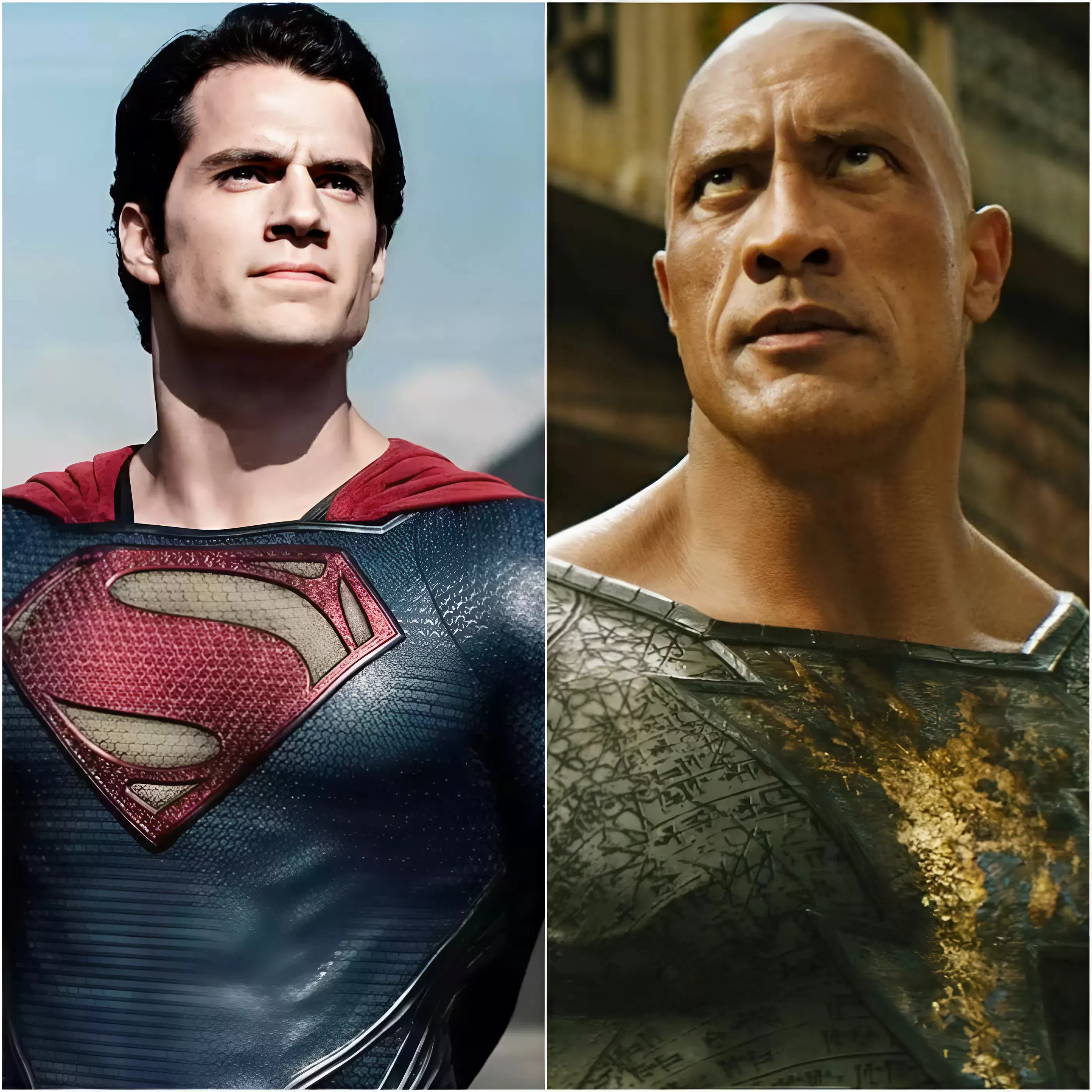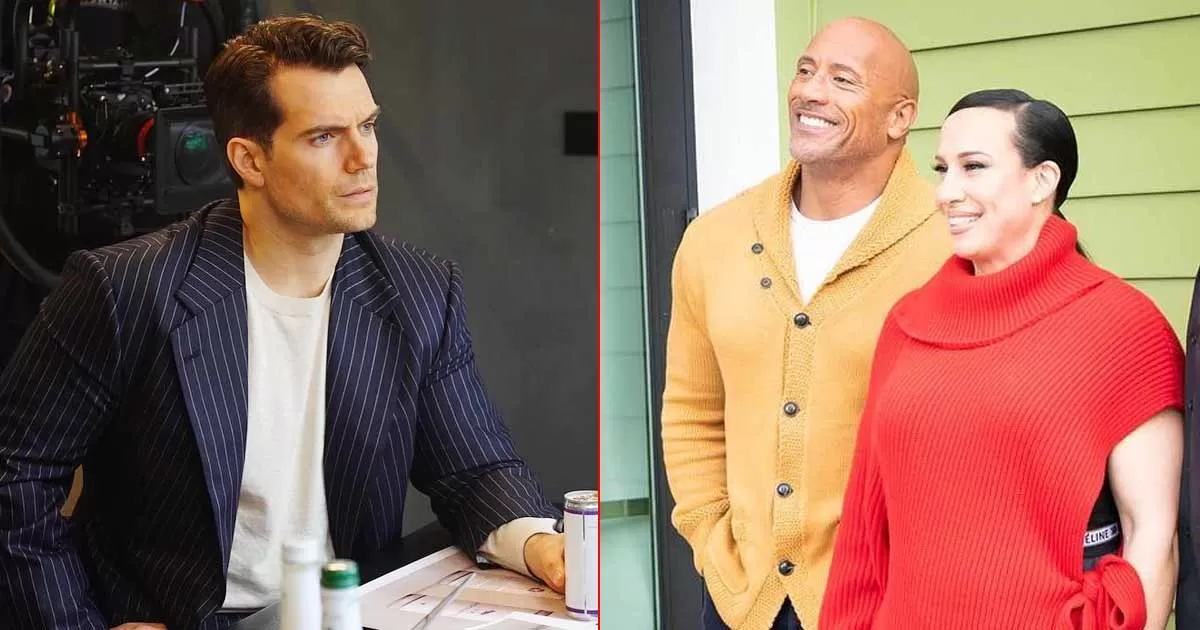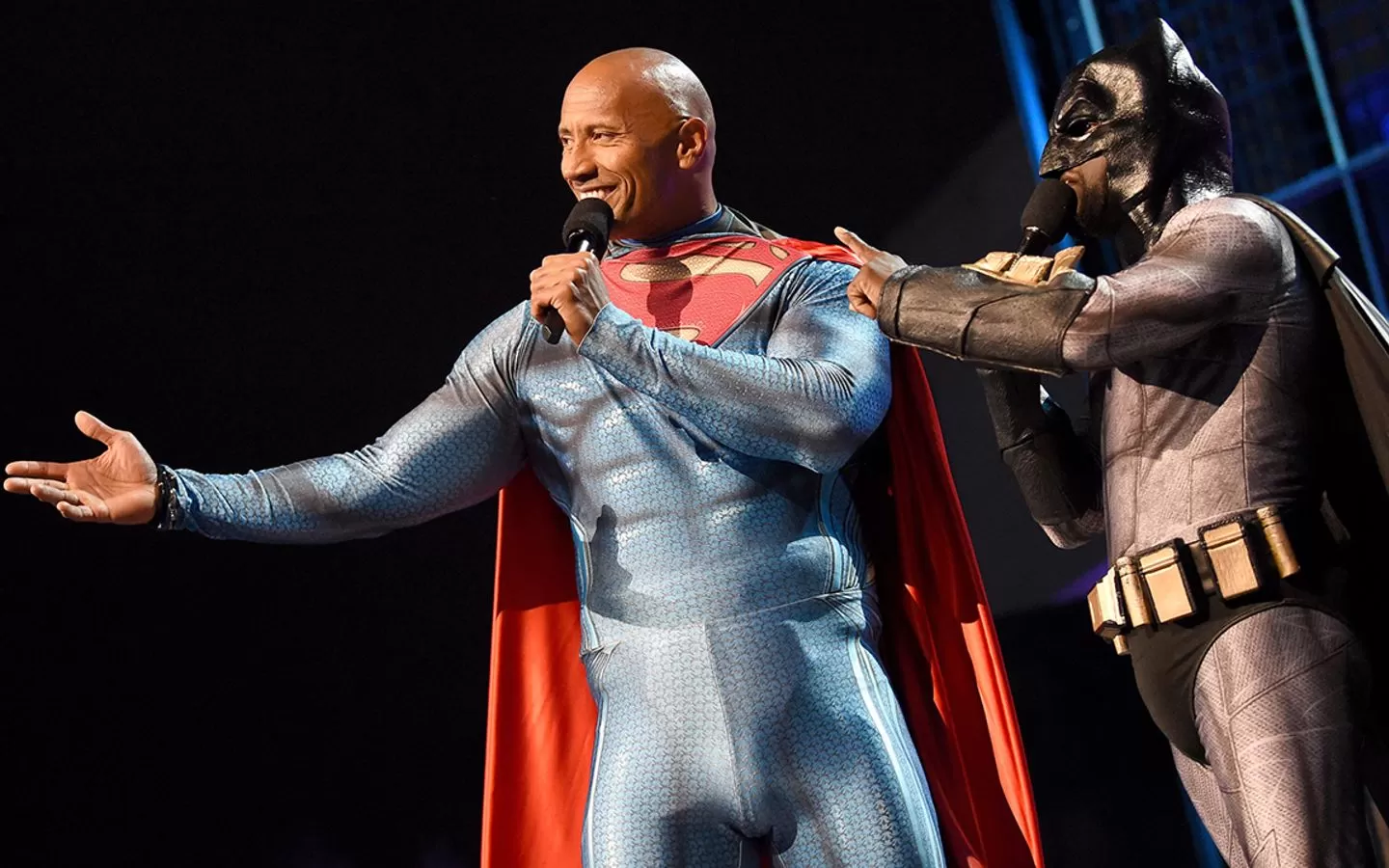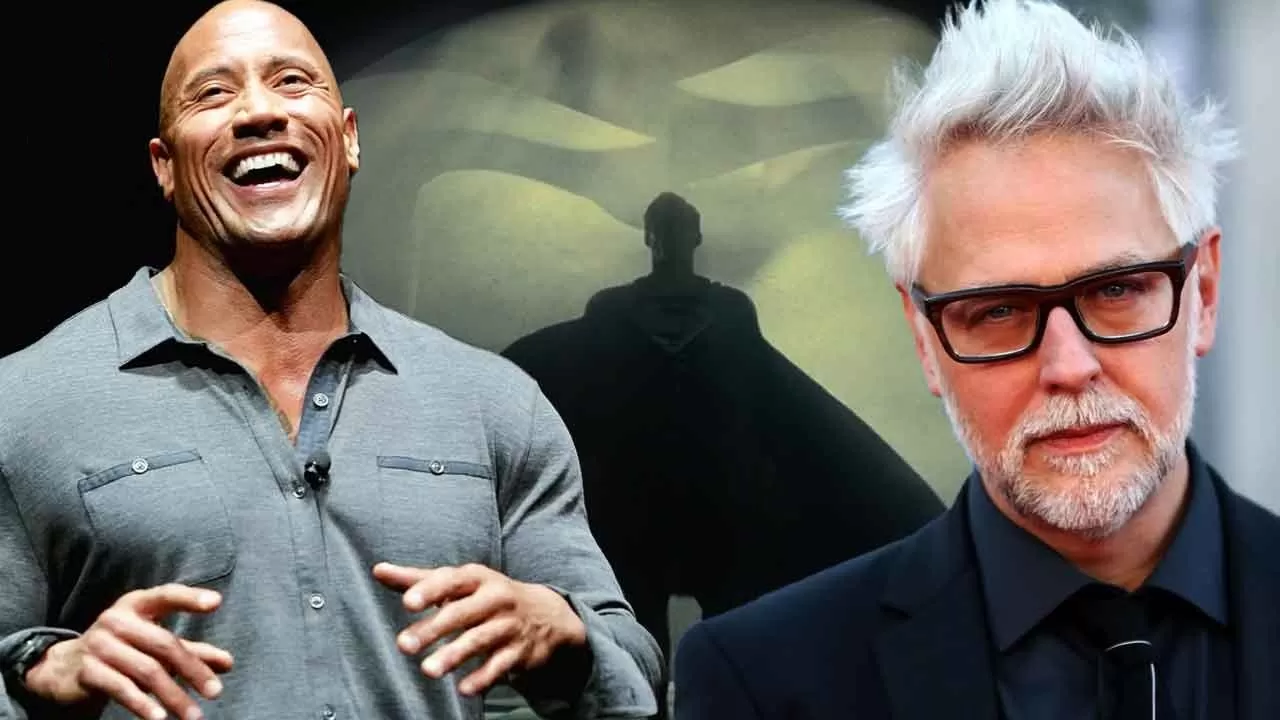Hollywood Leak: The Rock Forced DC to Make Movies His Way, Causing Henry Cavill to Lose Superman Role
The recent upheaval at DC Studios has sent shockwaves through Hollywood, with revelations about Dwayne “The Rock” Johnson’s influence over the studio’s creative decisions leading to significant consequences, including Henry Cavill’s departure as Superman. According to a report by *The Wrap*, The Rock’s insistence on shaping the DC Extended Universe (DCEU) to fit his personal vision ultimately disrupted the studio’s broader plans, contributing to the dramatic changes now underway under the leadership of James Gunn and Peter Safran.

When James Gunn and Peter Safran took over as co-CEOs of DC Studios, they embarked on a mission to reboot the DCU, aiming to create a cohesive and interconnected universe across movies, TV shows, and video games. This ambitious plan required sweeping changes, including the departure of several high-profile actors, such as Henry Cavill, who had recently reprised his role as Superman, and Dwayne Johnson, who played the anti-hero Black Adam. While Gunn cited creative reasons for these decisions, new reports suggest that The Rock’s behind-the-scenes maneuvering played a significant role in the studio’s restructuring.
According to *The Wrap*, The Rock’s involvement in the DCEU was marked by a series of demands that prioritized his character, Black Adam, over the broader narrative of the DCU. Two anonymous Hollywood executives revealed that Johnson rejected the idea of including Zachary Levi’s Shazam in a post-credits scene for *Black Adam*, despite the long-standing rivalry between the two characters in the comics. Instead, The Rock focused on promoting a potential showdown between Black Adam and Superman, frequently teasing a future clash between his character and Henry Cavill’s Man of Steel. “Dwayne put himself above the importance of the film,” one source told *The Wrap*. “Instead of making a film, he just wanted to expand his personal brand and create a brand around himself.”

This approach reportedly caused friction within DC Studios, as it deviated from the studio’s original plans. Initially, DC had envisioned Black Adam as a key antagonist in the *Shazam!* franchise, with the two characters sharing a deep connection in the comics. However, The Rock pushed for a standalone *Black Adam* movie, which was released in 2022. While the film introduced Johnson’s charismatic portrayal of the anti-hero, it failed to deliver on its promise of reshaping the DCEU. Despite The Rock’s ambitious claims that *Black Adam* would change the hierarchy of power in the DCU, the movie underperformed at the box office, grossing only $393 million worldwide against a $200 million budget.
The fallout from *Black Adam*’s disappointing performance was swift. James Gunn and Peter Safran, tasked with revitalizing the DCU, decided to cut ties with The Rock and move away from his vision for the franchise. This decision also had collateral damage: Henry Cavill, who had briefly returned as Superman in a *Black Adam* post-credits scene, was informed that he would not be continuing in the role. For fans, this was a heartbreaking development, as Cavill’s portrayal of Superman had been a bright spot in the often-turbulent DCEU. His departure marked the end of an era and left many wondering what could have been.

The Rock’s insistence on centering the DCU around Black Adam and his desire to control the narrative ultimately backfired. By prioritizing his character over the studio’s overarching plans, he alienated key decision-makers and disrupted the cohesion of the DCU. This, combined with *Black Adam*’s commercial failure, led to his removal from Gunn and Safran’s new vision for the franchise. While The Rock’s passion for the character was evident, his approach highlighted the challenges of balancing individual star power with the needs of a shared cinematic universe.
For Henry Cavill, the situation was particularly bittersweet. After years of uncertainty about his future as Superman, his cameo in *Black Adam* seemed to signal a new chapter for the character. However, the studio’s decision to reboot the DCU meant that Cavill’s time as the Man of Steel had come to an end. In a statement, Cavill expressed his gratitude to the fans and his sadness at leaving the role, but he also hinted at exciting future projects. “It’s sad news, but I respect the decision,” he said. “Superman is still a huge part of my life, and I’m excited to see what’s next.”

As the DCU moves forward under Gunn and Safran’s leadership, the lessons from this chapter are clear: a successful cinematic universe requires collaboration and a shared vision, not the dominance of a single star. While The Rock’s ambition to elevate Black Adam was admirable, it ultimately came at a cost—not just for him, but for the entire DCU. As fans look to the future, they can only hope that the new direction will bring the cohesion and excitement that the franchise has long promised. For now, the legacy of Henry Cavill’s Superman and The Rock’s Black Adam serves as a reminder of the complexities and challenges of building a cinematic universe.




